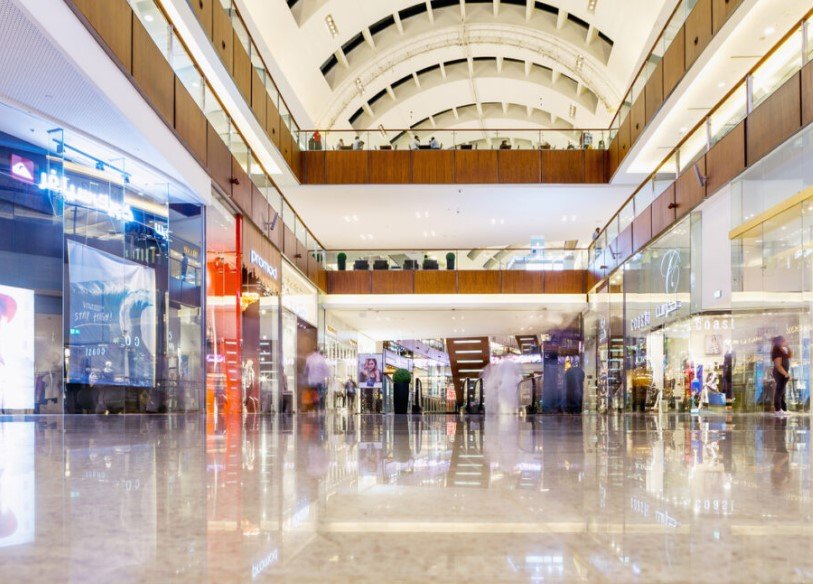Emirati Group’s Strategic Bet Signals Stronger UAE–Saudi Business Ties
Al Futtaim Group is making a major play in Saudi Arabia’s booming consumer market. The Dubai-based conglomerate is snapping up a 49.95% stake in Riyadh’s Cenomi Retail in a deal valued at more than 2.5 billion riyals ($667 million), marking one of the largest UAE private-sector investments into the kingdom’s retail space in recent years.
The announcement came Sunday via a statement from Cenomi Retail. It confirmed that shares were priced at 44 riyals apiece, and that founding shareholders had agreed to the sale following a formal share purchase agreement. The deal still hinges on several conditions being finalized — including a shareholder loan worth at least 1.3 billion riyals to help shore up Cenomi’s balance sheet.
A Rare Cross-Border Retail Move in the Gulf
This isn’t just another acquisition. It’s a bold cross-border move in a region where most large-scale retail players prefer to operate independently within their home markets. Al Futtaim, which holds long-standing retail rights to global brands like IKEA and Marks & Spencer, is one of the few Gulf groups with enough heft and experience to expand laterally across the GCC’s fiercely competitive consumer sectors.
The investment — nearly half of Cenomi — gives Al Futtaim a meaningful foothold in a kingdom undergoing sweeping economic changes.
In a statement, Vice Chairman and CEO Omar Al Futtaim said: “This investment represents substantial foreign direct investment from the UAE private sector and underscores the strong economic partnership between our countries.”
That language was telling. The UAE and Saudi Arabia have grown economically closer in recent years, even amid moments of geopolitical tension. Trade between the two topped $28 billion last year, and this deal is likely to nudge that even higher.
Cenomi’s Balance Sheet Needs a Lift
But this deal isn’t purely about long-term growth. Part of the near-term focus is about financial stabilization.
The companies are now negotiating a shareholder loan worth at least 1.3 billion riyals, which is expected to go straight into Cenomi Retail’s books.
One sentence. That’s how serious it is.

Cenomi, despite being a major operator of food and fashion franchises like Zara, Virgin Megastore, and Cheesecake Factory in Saudi Arabia, has been under financial pressure since 2022. Its retail unit posted losses in multiple quarters last year, largely due to high operating costs and sluggish store productivity in some secondary cities.
The shareholder loan — a condition for deal closure — will likely be structured as a long-term facility with low interest, according to two people familiar with the talks but not authorized to speak publicly. This type of capital injection is crucial to restoring investor confidence, especially as Cenomi Retail tries to modernize its store formats and invest in e-commerce.
Why This Stake — and Why Now?
So, what’s in it for Al Futtaim? A lot, actually.
Timing-wise, Saudi Arabia’s Vision 2030 is entering a phase where consumer-led sectors like entertainment, food, and lifestyle retail are growing faster than ever. Riyadh, Jeddah, and even cities like Abha and Tabuk are seeing a sharp rise in mall developments, franchise launches, and disposable incomes.
Cenomi happens to own or operate in most of these spaces. Here’s why the deal makes sense from Al Futtaim’s perspective:
-
Cenomi has exclusive franchise rights to more than 80 international brands in Saudi Arabia.
-
Saudi retail sales in Q1 2025 were up 12.3% year-on-year, per government data.
-
Over 65% of Saudi Arabia’s population is under the age of 35 — and that’s where most of Cenomi’s brands target.
That mix — youth, cash, and infrastructure — is a siren song for any retailer with big plans.
Comparing the Regional Retail Giants
Here’s how Al Futtaim’s new play compares with other major GCC retail operators:
| Retail Group | Home Country | Major Brands | Cross-Border Stakes |
|---|---|---|---|
| Al Futtaim Group | UAE | IKEA, M&S, Toys R Us | Now in Saudi Arabia (Cenomi) |
| Chalhoub Group | UAE | Louis Vuitton, Sephora, Louboutin | Focused on luxury, regional only |
| Landmark Group | UAE | Centrepoint, Home Centre | Heavily Saudi-focused |
| Majid Al Futtaim | UAE | Carrefour, VOX Cinemas | Large Saudi footprint but no equity stakes |
What stands out is Al Futtaim’s approach — instead of just launching new stores, it’s buying into the ownership structure.
That’s a big shift from traditional franchising and signals a more embedded, risk-sharing approach between Gulf retail families.
What It Means for the Saudi Market
For Saudi Arabia, this deal couldn’t come at a better time.
Cenomi Retail is one of the kingdom’s oldest and most prominent franchisers, yet its grip on younger consumers has weakened in the face of fast-growing newcomers like Noon.com and local concept stores. With Al Futtaim onboard, the company may finally have the tools — and money — to compete in an increasingly digital and experience-driven market.
But there’s also a soft-power element here. Saudi regulators have long encouraged “productive FDI” — meaning foreign capital that actually creates jobs, stores, and domestic revenue. This deal likely ticks all those boxes.
One Saudi investment analyst, who declined to be named, said: “This isn’t just about ownership. It’s about brand revival. Al Futtaim has the playbook.”
And people will be watching whether they can execute it.
Will the Kingdom Open More Deals Like This?
This acquisition could be a bellwether. If Al Futtaim’s move into Cenomi succeeds, it may embolden other big regional players — perhaps even international ones — to make similar equity-based deals in Saudi Arabia.
That would mark a quiet transformation in how Gulf retail markets operate. From passive franchising to co-ownership. From low-risk licensing to skin-in-the-game partnerships.
But it’s still early days. The deal hasn’t closed. The shareholder loan isn’t finalized. And Cenomi’s financials still need work.
Still, it’s hard not to feel that something real — and new — is taking shape between two of the Gulf’s biggest economies.
